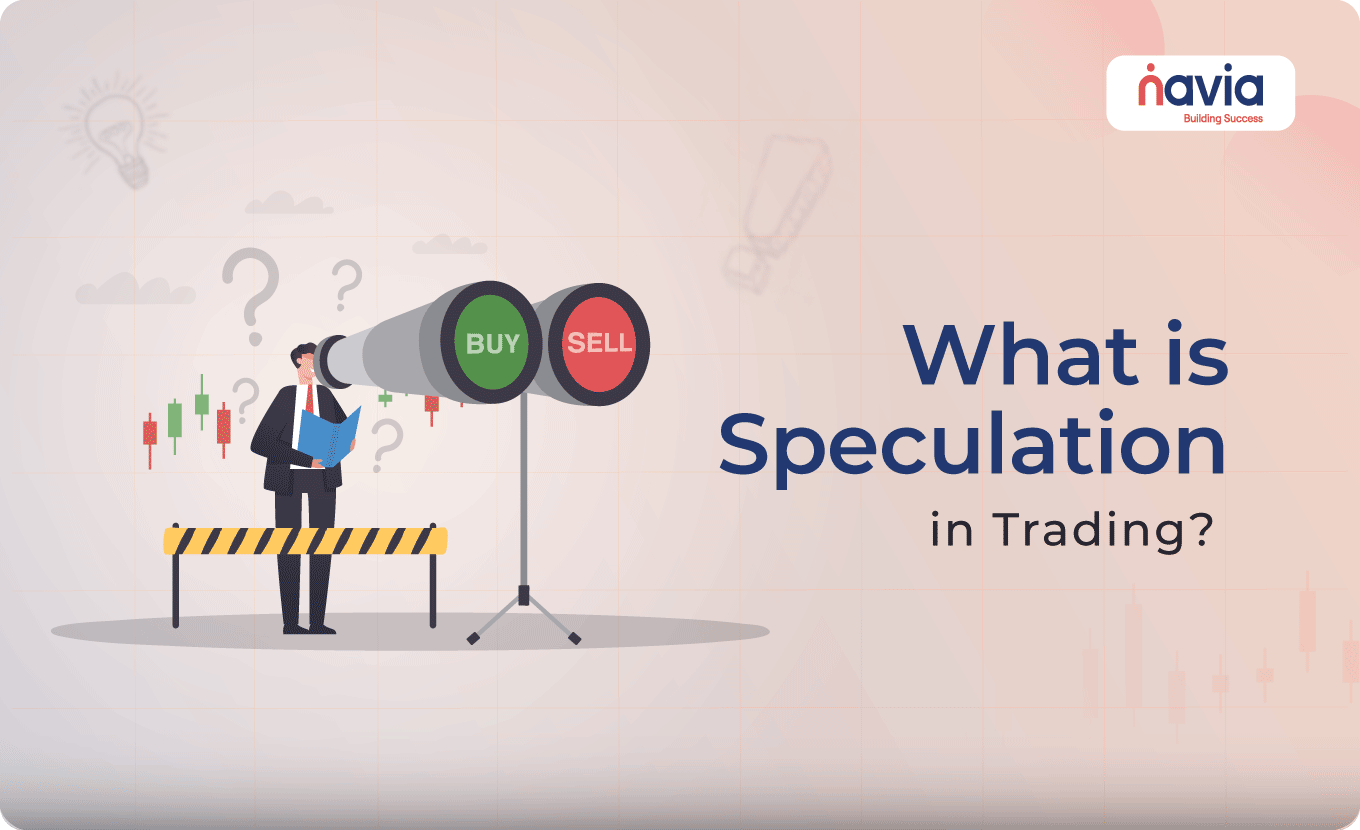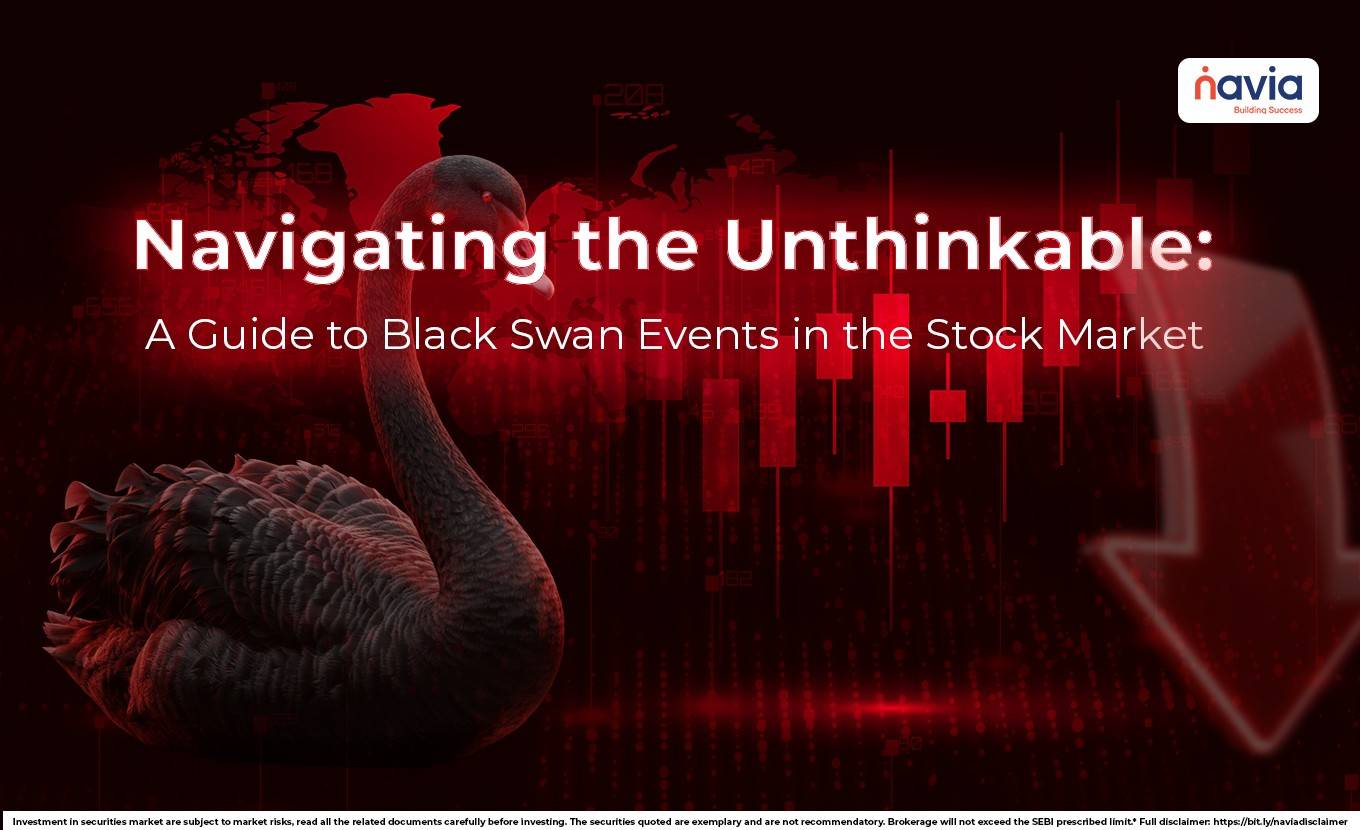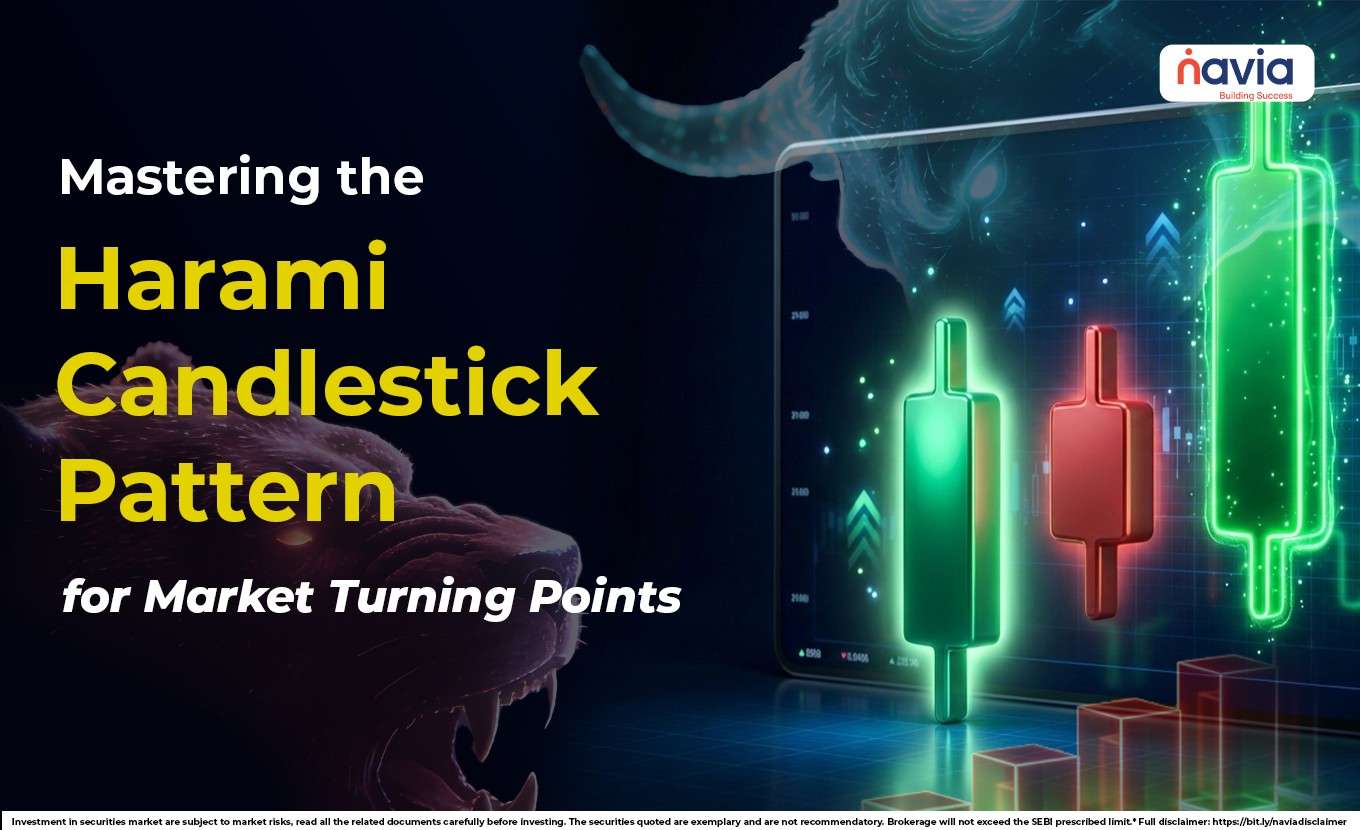What is Speculation in Trading?

In the dynamic world of the financial market, speculation in trading plays a significant role in shaping market movements. While most people misunderstood this term, speculation is a natural part of trading activity across the globe. But actually, what does it mean?
This blog will help you to understand what is speculation in the share market, who speculators are, how it works, strategies they use, and the risks and rewards. If you are new to trading or want to sharpen your understanding, this blog is the best guide for you.
What is Speculation?
Speculation means the process of buying and selling financial instruments like stocks, currencies, or commodities. Through this act investors expect to profit from the short-term price movements. If the investor chooses long-term investing, the speculation focuses on predicting price direction over minutes, hours, or days.
When we talk about speculation in the stock market, it means trades that are based on price expectation rather than long-term success. The traders will react quickly to news, trends and patterns, and make decisions. In simple words, they are focusing on short-term price fluctuations rather than dividends or growth potential.
Who are Speculators?
Speculators can be anyone, like individuals or institutions, they actively trade financial assets to earn profit from market fluctuations. The most common types of speculators are listed below;
| Types of Speculators | Definition |
| Bullish | Bullish speculators believe that the price of the stock or asset will rise in the future. So, they take long positions they aim to profit from the upward movement in price. |
| Bearish | Bearish speculators expect the price of a stock or asset to decline and aim to profit from that drop. They will use strategies to capitalize on falling markets. |
| Stag | Stag speculators apply for shares in an IPO to sell them immediately to earn quick profits. They don’t hold the shares for a long time, and target IPOs are expected to be listed at a premium. |
| Lame Duck | Lame duck speculators are unable to meet their financial obligations because of failed market bets. They face heavy losses and may be forced out of the market. |
How Does Speculation Work?
It involves making calculated bets on the future price movement of a particular asset. And is also used to;
🠖 Technical analysis to study about the price charts, patterns and indicators
🠖 News and events such as earning reports, economic data and geopolitical developments
🠖 Market sentiment indicators to access fear or greed
For example, a speculator buys a stock based on a breakout pattern and plans to sell it within hours to get a small profit, even if they have no interest in the company’s fundamentals.
Different Types of Speculation Strategies
There are so many speculation strategies available that are used depending on the market conditions. Some popular strategies are given below;
| Speculation Strategies | Definition |
| Day Trading | It is the buying and selling financial assets on a single trading day to earn profit in intraday price movements. |
| Swing Trading | It is focusing on capturing gains from short to medium price movements and they are using technical indicators to identify market trends. |
| Options and Futures Trading | Some speculators trade in options or futures for leveraged exposure. This allows for bigger potential profits, but also bigger losses. |
| Short Selling | In bearish conditions, speculators may sell borrowed stocks hoping to buy them back at a lower price, profiting from the decline. |
| Commodities and Forex Trading | Speculation is a common term in both commodity and forex markets. Because of its high volatility and sensitivity to global events. |
| News-Based Trading | Speculators often react to news like earnings reports, product launches, or global events. These fast decisions based on news can lead to high rewards and risks. |
| Breakout Trading | Here, traders enter a position when the price breaks above resistance or below support levels, expecting strong moves in the same direction. |

Risk and Reward in Speculation
We know that speculation aims at the possibility of high returns, especially over short periods. However, it carries risk also, if you are not managed properly it leads to rapid losses.
Rewards;
🠖 High returns from short-term movements
🠖 Get opportunities in volatile markets
🠖 Flexible strategies
Risks;
🠖 High volatility leads to quick losses
🠖 Emotional trading cause poor decisions
🠖 Overtrading of leverage can wipe out capital
To mitigate these risks, you have to use professional tools like stop-loss orders, risk-reward ratios, and position sizing. If you don’t practice these tools, your speculative trading gambling than strategy.
Conclusion
Speculation in trading is a natural part of how markets function. All types of speculators are seen as risk-takers; they add liquidity and efficiency to the financial system. But if you are considering speculative trading, it’s a little bit crucial to understand the difference between investing and speculating, be aware of risks, and learning and adapting.
If you are curious about exploring speculation in stock exchange mechanisms, always remember that successful speculation relies on knowledge, timing, and emotional control. To become an expert in speculation trading, open an account in Navia and fly to success!
Do You Find This Interesting?
Frequently Asked Questions
What is speculation in the market?
Speculation in the share market involves buying or selling stocks with the goal of making a quick profit from price movements, rather than holding long-term value.
Who are speculators in the stock market?
Speculators are traders who take high-risk positions in hopes of making quick profits from short-term price fluctuations.
Is speculation the same as investing?
No. Investing focuses on long-term growth and fundamental value, while speculation is short-term and driven by market timing or sentiment.
Is speculative trading legal in India?
Yes, speculative trading is legal and widely practiced on regulated exchanges. However, it must be done within the rules of the exchange and without market manipulation.
Can I make money from speculation?
Yes, many traders profit from speculation, but it carries a high risk. Success depends on skill, timing, and proper risk management.
DISCLAIMER: Investments in the securities market are subject to market risks, read all the related documents carefully before investing. The securities quoted are exemplary and are not recommendatory. Brokerage will not exceed the SEBI prescribed limit.






